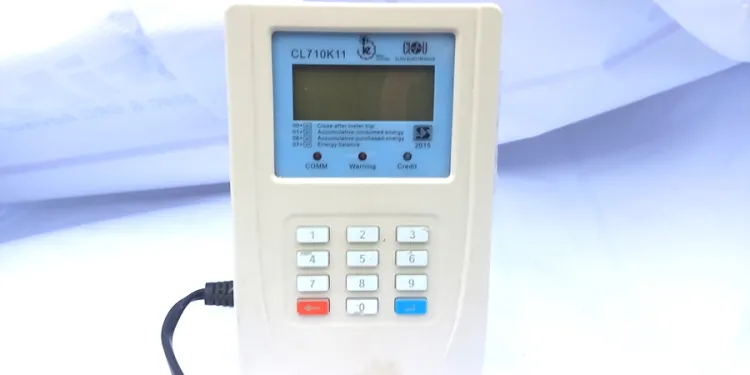IKEJA ELECTRIC ANNOUNCES NEW METERS PRICED BETWEEN N91K AND N218K
Amidst the harsh economic conditions faced by Nigerians, Ikeja Electric has announced new meter prices, according to Techeconomy.
On Monday, Ikeja Electric disclosed six organizations where various meter capacities at different prices can be procured. According to the Electricity Distribution Company (DisCo), the prices are as follows:
- 1-Phase (Smart Meter-PLC): ₦112,853.50
- 3-Phase (Smart Meter-PLC): ₦214,403.38
- 1-Phase (Smart Meter-GSM/GPRS): ₦111,235.63, ₦112,337.76, and ₦96,750.00
- 3-Phase (Smart Meter-GSM/GPRS): ₦213,597.13, ₦206,737.42, and ₦182,750.00
- 1-Phase (Smart Meter-Cellular): ₦112,235.63, ₦115,025.00, ₦112,337.76, and ₦114,487.50
- 3-Phase (Smart Meter Din-Rail-PLC): ₦213,597.13, ₦218,225.00, ₦206,737.42, and ₦217,687.50
- 1-Phase (Din-Rail-PLC): ₦93,525.00
- 1-Phase (Din-Rail-RF): ₦133,300.00 and ₦91,375.00
A public opinion poll conducted by NOI Polls revealed that only 37% of electricity customers in Nigeria own fixed pre-paid meters. The remaining customers use post-paid meters or pay fixed amounts for electricity without a meter. The highest usage of pre-paid meters is in the North-East zone, while the lowest is in the South-East zone. The poll also found that 44% of respondents pay between ₦1,000 and ₦5,000 per month for electricity.
On average, 68% of electricity customers across Nigeria have power for less than nine hours per day, with 5% having no electricity supply at all. Additionally, 67% of respondents expressed a willingness to pay more for a steady 24-hour electricity supply.
Earlier this year, Musiliu Oseni, the NERC Vice Chairman, announced an increase in electricity tariffs. Speaking at a press conference in Abuja, Mr. Oseni explained that only customers in Band A would be affected by the hike. Bands B, C, D, and E would remain unaffected. Band A customers, who represent 15% of the population but consume 40% of the nation’s electricity, are supposed to receive an average of 20 hours of electricity daily, although many report receiving less.
Mr. Oseni stated that power distribution companies (DisCos) would be allowed to raise electricity prices to ₦225 ($0.15) per kilowatt-hour from ₦68 for Band A customers. The number of feeders classified as Band A has been reduced to under 500, affecting less than 15% of customers. These feeders, meeting the average 20-hour supply requirement, will experience the tariff increase, effective immediately.
The commission’s review concluded that only the 17% of feeders, corresponding to 15% of customers, would be subject to the approved rate hike. This adjustment is detailed in the April Supplementary Order issued by the commission.

